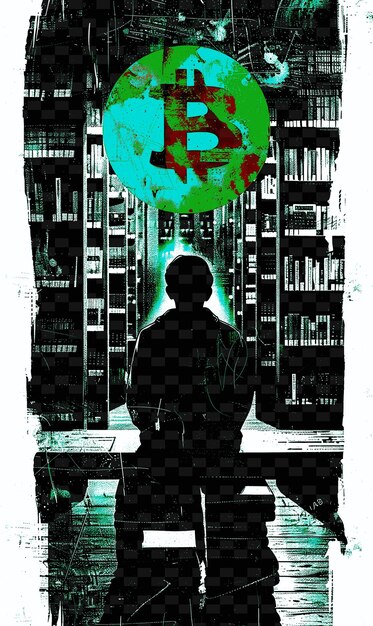News Tokens Impact on Journalistic Independence in the US: A Critical Look

The impact of news tokens on journalistic independence in the US is complex, offering potential benefits like funding diversification but also raising concerns about editorial control and market volatility, demanding a thorough examination.
The digital age has brought both unprecedented opportunities and significant challenges to journalism. One of the more recent developments is the introduction of news tokens, a form of cryptocurrency aimed at supporting journalistic endeavors. This article delves into the impact of news tokens on journalistic independence in the US: a critical examination, exploring the potential benefits, risks, and overall implications for the future of news.
Understanding News Tokens and Their Function
News tokens are digital assets designed to incentivize and reward journalistic content creation and consumption. They operate on blockchain technology, providing a transparent and secure platform for transactions. Understanding their function is crucial to grasping how they might affect journalistic independence.
How News Tokens Work
News tokens typically function as a medium of exchange within a specific news ecosystem. Users can earn tokens by creating content, curating news, or simply engaging with the platform. These tokens can then be used to access premium content, support journalists directly, or participate in platform governance.
Key Features of News Tokens
- Decentralization: News tokens operate on decentralized networks, reducing reliance on traditional intermediaries like advertising platforms.
- Transparency: Blockchain technology ensures that all transactions are recorded and verifiable, promoting accountability.
- Direct Support: Readers can directly support journalists and content creators, fostering a more sustainable funding model.
The underlying mechanism of news tokens aims to realign incentives within the news industry, moving away from click-based advertising models towards a system that rewards quality content and engaged readership.
Potential Benefits for Journalistic Independence
News tokens offer several potential benefits for journalistic independence in the US. By diversifying funding sources and reducing reliance on traditional advertising, they could help news organizations maintain editorial integrity and resist external pressures.

Diversifying Funding Sources
One of the most significant benefits of news tokens is the ability to diversify funding sources. Instead of relying solely on advertising revenue or subscriptions, news organizations can generate income through the creation and distribution of their own tokens. This can reduce their dependence on large corporations or government entities, thereby enhancing their independence.
Reducing Reliance on Advertising
Traditional advertising models often incentivize sensationalism and clickbait, as news organizations compete for ad revenue. News tokens can help mitigate this issue by providing an alternative revenue stream that is tied to the value of the content itself, rather than its ability to generate clicks.
The shift towards a token-based economy could foster a more sustainable and ethical journalistic landscape, where quality and accuracy are prioritized over sensationalism.
Risks and Challenges to Independence
Despite their potential benefits, news tokens also pose several risks and challenges to journalistic independence. These include market volatility, potential for manipulation, and the need for robust governance mechanisms.
Market Volatility and Sustainability
The value of cryptocurrencies, including news tokens, can be highly volatile. This can create uncertainty for news organizations that rely on token revenue to fund their operations. A sudden drop in token value could jeopardize their financial stability and force them to make difficult editorial decisions.
Potential for Manipulation and Bias
News tokens could be susceptible to manipulation by individuals or groups with vested interests. For example, wealthy donors could purchase large amounts of tokens to exert influence over editorial content or reward biased reporting. This could undermine the credibility of the news organization and erode public trust.
The Need for Robust Governance Mechanisms
To mitigate these risks, it is essential to establish robust governance mechanisms for news token platforms. These mechanisms should include safeguards to prevent manipulation, ensure transparency, and protect the editorial independence of participating news organizations. Clear guidelines and ethical standards are also needed to guide the use of news tokens in journalism.
Careful consideration and proactive measures are crucial to harnessing the benefits of news tokens while minimizing their potential harms.

Case Studies: Early Adopters of News Tokens
Several news organizations and platforms have already begun experimenting with news tokens in the US. Examining these early adopters can provide valuable insights into the practical implications of news tokens for journalistic independence.
Civil
Civil was an early blockchain-based journalism platform that aimed to create a decentralized news ecosystem. It used its own cryptocurrency, CVL, to reward journalists and incentivize community participation. While Civil ultimately faced challenges and shut down, its experiment provided valuable lessons about the potential and limitations of news tokens.
Brave and Basic Attention Token (BAT)
Brave is a web browser that incorporates the Basic Attention Token (BAT), a cryptocurrency designed to reward users for their attention and support content creators. Users can earn BAT by viewing ads and then use those tokens to support their favorite news websites and journalists. This model offers a promising alternative to traditional advertising.
Local Media Outlets
Some local media outlets in the US are exploring the use of news tokens to engage with their communities and generate revenue. These initiatives often involve issuing tokens that can be used to access local news content, attend events, or support local journalism projects. Such efforts highlight the potential for news tokens to strengthen community ties and foster local news ecosystems.
These case studies illustrate the diverse ways in which news tokens can be implemented and the varying degrees of success that have been achieved so far.
The Role of Regulation and Policy
The regulatory landscape surrounding cryptocurrencies and news tokens is still evolving in the US. Clear and thoughtful regulation is needed to foster innovation while protecting consumers and ensuring the integrity of the news ecosystem.
Current Regulatory Framework
Currently, cryptocurrencies are subject to a patchwork of federal and state regulations in the US. The Securities and Exchange Commission (SEC) has asserted jurisdiction over some cryptocurrencies, classifying them as securities and subjecting them to securities laws. Other agencies, such as the IRS and the Department of Treasury, also have regulatory authority over cryptocurrencies.
Potential Policy Interventions
- Clarity on Token Classification: Providing clear guidance on whether news tokens are considered securities or commodities can help reduce uncertainty and encourage investment.
- Consumer Protection Measures: Implementing measures to protect consumers from fraud and manipulation in the news token market is crucial.
- Support for Innovation: Policymakers should consider providing incentives and support for innovative news token projects that promote journalistic independence and public interest journalism.
By carefully balancing regulation and innovation, policymakers can help ensure that news tokens are used to enhance, rather than undermine, journalistic independence in the US.
The Future of News Tokens in US Journalism
The future of news tokens in US journalism is uncertain, but there is considerable potential for them to play a significant role in shaping the industry. As technology evolves and regulatory frameworks become clearer, news tokens could become an increasingly viable option for funding and supporting independent journalism.
Trends to Watch
Several key trends will likely shape the future of news tokens in the US. These include the increasing adoption of blockchain technology, the growing demand for decentralized news solutions, and the evolving regulatory landscape governing cryptocurrencies.
Potential Scenarios
In one potential scenario, news tokens could become a mainstream funding model for independent news organizations, enabling them to operate without relying on traditional advertising or corporate sponsorship. In another scenario, news tokens could remain a niche phenomenon, used primarily by alternative media outlets and community-based news projects.
The ultimate outcome will depend on a variety of factors, including technological developments, regulatory decisions, and the willingness of news organizations and consumers to embrace new funding models. However, if implemented correctly, news tokens have the potential to usher in a new era of independence and sustainability for journalism in the US.
| Key Aspect | Brief Description |
|---|---|
| 💰 Funding Diversification | News tokens offer alternative funding, reducing reliance on ads. |
| ⚖️ Independence Challenges | Market volatility and potential manipulation pose risks. |
| 🛡️ Regulation’s Role | Clear policies can foster innovation while ensuring integrity. |
| 🌐 Decentralized Future | News tokens could reshape journalism, promoting sustainability. |
Frequently Asked Questions
▼
News tokens are cryptocurrencies designed to support journalistic content and incentivize user engagement. They typically operate on blockchain networks, allowing users to earn tokens by creating, curating, or consuming news content.
▼
By providing alternative funding sources, news tokens reduce reliance on traditional advertising and corporate sponsorships. This can enable news organizations to maintain editorial integrity and resist external pressures.
▼
Risks include market volatility, potential for manipulation by vested interests, and the need for robust governance mechanisms to prevent bias and ensure transparency.
▼
Regulation is crucial to fostering innovation while protecting consumers and ensuring the integrity of the news ecosystem. Clear guidelines and consumer protection measures are essential.
▼
The future is uncertain but promising. As technology advances and regulatory frameworks evolve, tokens could play a significant role in funding and supporting independent journalism in the US.
Conclusion
In conclusion, news tokens present both opportunities and challenges for journalistic independence in the US. While they offer the potential to diversify funding sources and reduce reliance on traditional advertising, they also pose risks related to market volatility and manipulation. Careful consideration, robust governance, and thoughtful regulation will be essential to harnessing the benefits of news tokens while safeguarding the integrity and independence of journalism.





